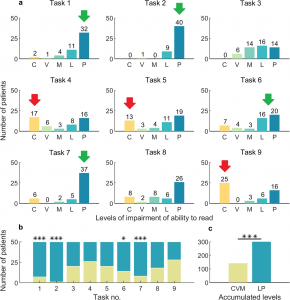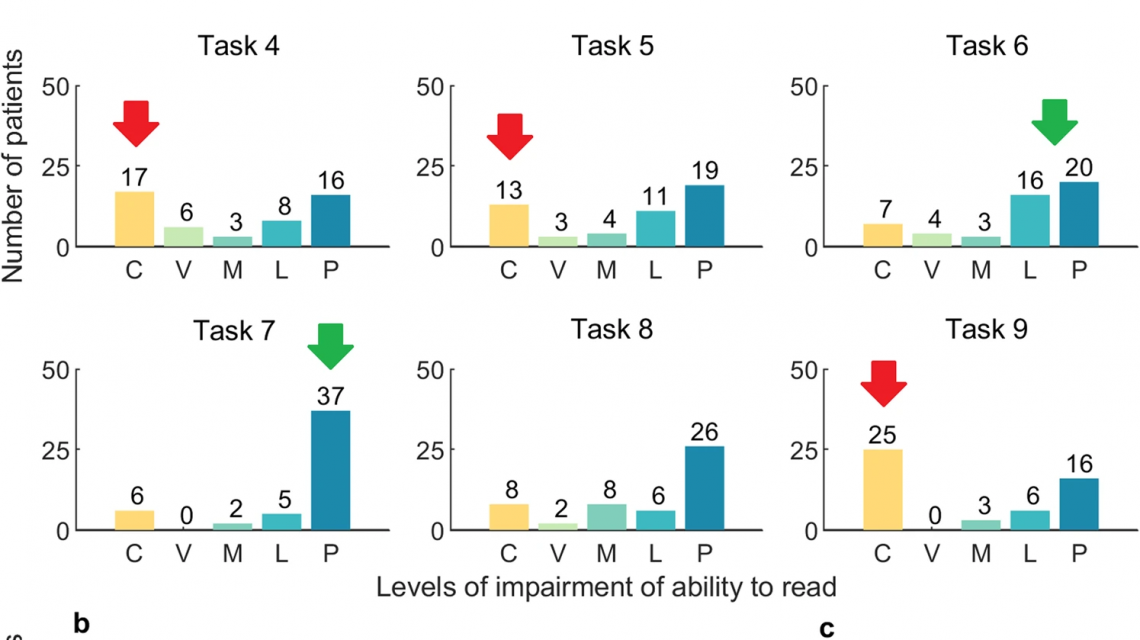Can post-comatose minimally conscious patients read? A new study by the member of our BME lab assesses with eye-tracking technology. 23 January 2020 – Posted in: news – Tags: 2020, biomedical engineering, Brain, Doctoral, EEG, Gdansk University of Technology, neurology, paper, signal processing
 Dr. Michal Lech, postdoc in our BME lab, in his recent Scientific Reports publication with Dr.
Dr. Michal Lech, postdoc in our BME lab, in his recent Scientific Reports publication with Dr.Agnieszka Kwiatkowska, Dr. Piotr Odya, and Prof. Andrzej Czyżewski from the Department of
Multimedia Systems of the Gdansk University of Technology, found that the post-comatose patients
with minimal consciousness tend to preserve reading comprehension skills but neglect syntax and
spelling. Their results showed that most patients preserved the ability to read one- and two-syllable
words and comprehended sentences but had poor ability to recognize errors, both in words (wrong
letters) and in sentences (wrong order of words in a sentence). Nevertheless, errors deliberately
inserted into the words by the therapist did not affect the reading comprehension. This led them to
conclude that while it was possible to convey a message to those patients through the written word,
one should not expect them to reply by choosing specific words on the screen and make sentences.
This study emphasizes the need and importance of transforming medical practice by employing the
emerging eye-tracking technologies as tools complementary to the currently used clinical ones. Dr.
Lech’s previous publication in the Frontiers of Neurology journal (see the January 2019 BME lab news
and the link below) reached similar conclusions when the level of consciousness in those patients
was assessed using the same eye-tracking technology. Combining standard clinical methods with eye-
tracking technologies can give deeper insight into a patient’s condition and consequently contribute
to the development of new therapeutic approaches. The research was conducted as part of the HCI
Brain project (PI: Andrzej Czyżewski, funded by the National Science Centre of Poland based on the
decision DEC-2014/15/B/ST7/04724) and is freely available on the journal’s website (link below). We
are excited to see Dr. Lech now apply his expertise in these technologies with epilepsy and
Parkinson’s disease patients during memory performance!
Previous publication from this project can be found here:

